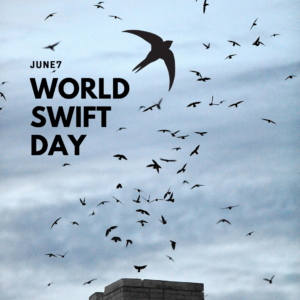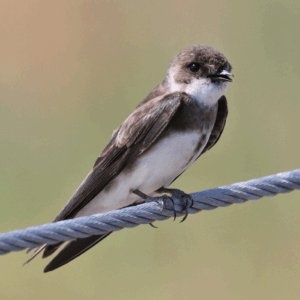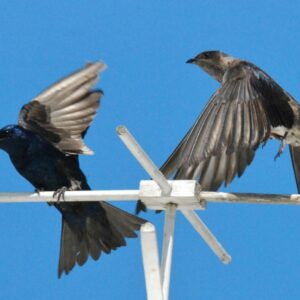Clean up Efforts in the Gulf are Harmful to Birds and their Habitats

Mike Parr and Bob Johns of the American Bird Conservancy (ABC) carried out a six day field survey from July 1 – July 6 2010 to assess the impacts of the Deepwater Horizon oil spill on the Gulf of Mexico. The areas surveyed were Barataria Bay, Mississippi Delta’s South Pass and Breton Island. Upon completion of their survey they issued a report which concluded that many clean up efforts were harmful to birds and their habitats. The report also includes five key recommendations that ABC believes should be additional urgent priorities.
The five recommendations made by ABC are:
1) The use of more effective boom to protect bird colonies. Numerous instances were observed where boom was in complete disarray, including being washed up on shore.
2) The employment of better fencing and other measures to protect sensitive beach nesting areas and to reduce disturbance to birds. Clean-up crews were clearly unaware in several instances of the negative impacts they were causing to birds and their habitat.
3) The deployment of adequately sized and equipped oil skimmers close to the coast with improved real-time oil reports to eliminate oil before it reaches the beaches and marshlands. ABC observed an instance of a substantial heavy oil slick about half a mile offshore while cleanup vessels were operating in very mildly oiled waters about one mile away – apparently unaware.
4) The creation of a staging and recovery area for heavily oiled birds close to the coast. With the moving of the existing facility to a location about 70 miles away, some sort of near-shore facility is needed.
5) The restoration of eroded island habitat for nesting birds. Breton Island, for example, is a fraction of its original size, is an important bird habitat and is in desperate need of rebuilding.
For more explanations on the five recommendations and a list of birds the surveyors encountered during their field survey please read the full report. Although they felt the impacts on birds were not as significant as they could be, they raised concerns that if heavy oil made it to beaches, the impact on migrant shorebirds (set to arrive soon) and waterfowl (arriving in fall), would significantly increase. They identified the following birds, which are also found in Canada during their breeding or wintering seasons, as being at risk of heavily oiled beaches:
– Common Loon
– Northern Gannets
– Double-crested Cormorants
– Common Goldeneye
– Bufflehead
– Red-breasted Merganser
– Herring Gull
– Common Tern
In a bright spot of good news, they reported that no beaches were yet heavily oiled and bird cleaning efforts were going well.
ABC’s survey goes to show that the management of such oil spills is no easy task and requires a great deal of commitment, coordination and professional manpower. This is an important lesson to be added to Canada’s offshore drilling knowledge.
Photo: Bufflehead by Vladimir Morozov



